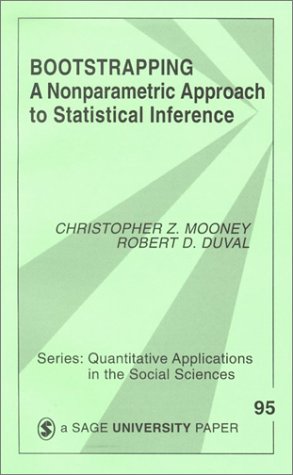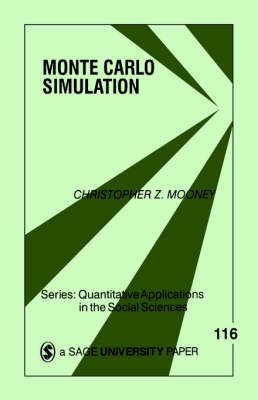Quantitative Applications in the Social Sciences
2 total works
Monte Carlo Simulation is a method of evaluating substantive hypotheses and statistical estimators by developing a computer algorithm to simulate a population, drawing multiple samples from this pseudo-population, and evaluating estimates obtained from these samples. Christopher Z. Mooney explains the logic behind Monte Carlo Simulation and demonstrates its uses for social and behavioral research in conducting inference using statistics with only weak mathematical theory, testing null hypotheses under a variety of plausible conditions, assessing the robustness of parametric inference to violations of its assumptions, assessing the quality of inferential methods, and comparing the properties of two or more estimators. In addition, Mooney carefully demonstrates how to prepare computer algorithms using GAUSS code and illustrates these principles using several research examples.
is a method of evaluating substantive hypotheses and statistical estimators by developing a computer algorithm to simulate a population, drawing multiple samples from this pseudo-population, and evaluating estimates obtained from these samples. Christopher Z. Mooney explains the logic behind and demonstrates its uses for social and behavioral research in conducting inference using statistics with only weak mathematical theory, testing null hypotheses under a variety of plausible conditions, assessing the robustness of parametric inference to violations of its assumptions, assessing the quality of inferential methods, and comparing the properties of two or more estimators. In addition, Mooney carefully demonstrates how to prepare computer algorithms using GAUSS code and illustrates these principles using several research examples.Monte Carlo Simulation will enable researchers to effectively execute Monte Carlo Simulation and to interpret the estimated sampling distribution generated from its use.

